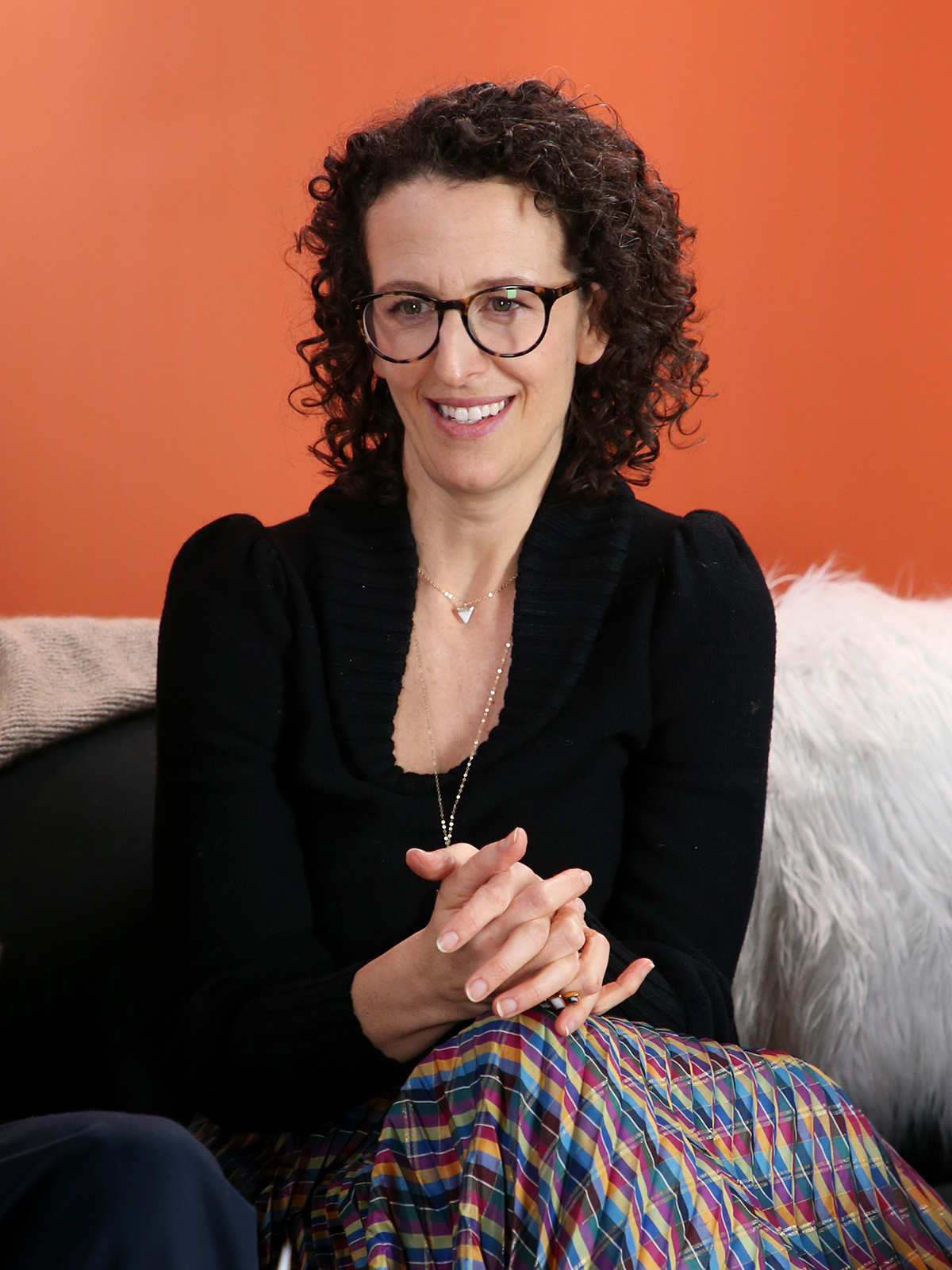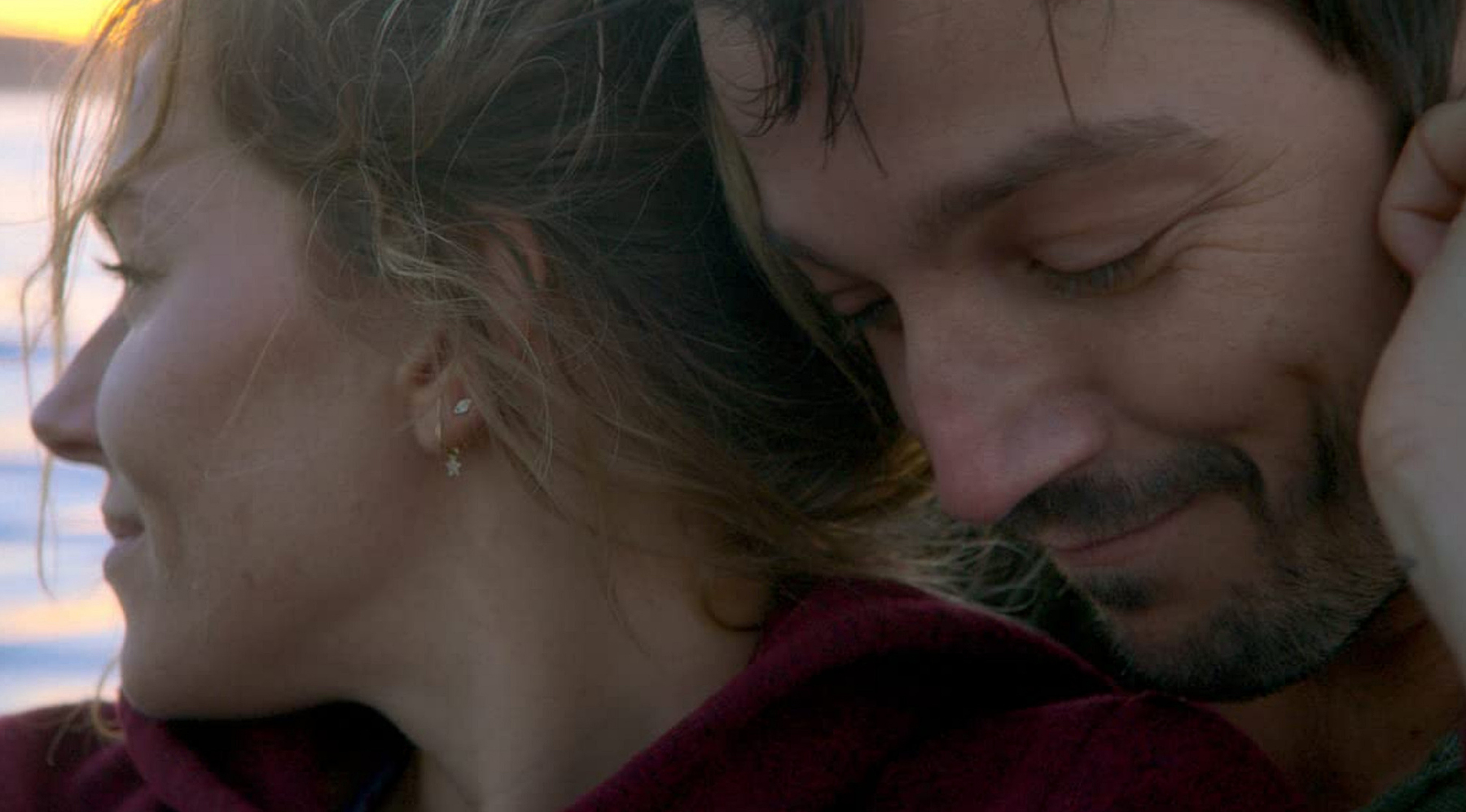
- Industry
“Wander Darkly”: Trauma Relived
Tara Miele’s Wander Darkly is a film about loss and trauma after a dramatic event turns the life of a couple of young new parents upside down. Adrienne (Sienna Miller) and Matteo (Diego Luna) are on their way home from a date night when they are involved in a deadly accident. Adrienne wakes up in the hospital convinced that she is dead but somehow still present and able to relive and experience their love story all over again going backward and forward in time as if it was fluid. It is a genre-bending film about loss, death, trauma and the afterlife, but it is also a celebration of love, relationships, and the memories of those loved ones who have left this world. Wander Darkly, premiered at Sundance and was both written and directed by Tara Miele. We spoke to her about this project via phone from Los Angeles.
You are a female filmmaker, and we all know that female directors are a minority. Why do you think this is the case?
I think women are the minority because of sexism. People think they do not have a bias and when you are comparing a man and a woman, there is something about ‘oh, the man as the leadership just feels right’. Thus, 51 percent of the opinion is in favor of the man and 49 percent of the woman. So that means that every time you are picking a man. I think that is what has happened historically with directors.
What made you decide to become a director and believe that you could make it?
I started doing youth theater when I was 11 years old in Thousand Oaks where I was living at the time. My first director was a woman, and she was quite strong, forceful and commanding, so it never occurred to me that it might be something that women do not do because in my experience it was definitely something women did. I think it was not until after I graduated film school and had done a few short film festivals that I hit the wall of not being able to finance movies. I fought for many years while the world around me was changing. I certainly feel that the playing field has begun to even out or open up a bit which is quite exciting.

Diego Luna and Sienna Miller in Wander Darkly (2020)
Sundance Film Festival
Wander Darkly was at Sundance. Can you talk about bringing the film to this festival where there seems to be a strong community of female filmmakers?
I certainly was thrilled to premiere Wander Darkly at Sundance and Lynette Howell, who was the producer on the film, is a part of that strong female community of filmmakers in the Sundance sphere, so I felt support in a beautiful way. Because our press schedule was very tight, I, unfortunately, did not get to meet any of the female directors at Sundance, which was a loss and real sadness for me. I (did) a panel with Radha Blank, so I was very excited to get to meet her and tell her how much I enjoyed her film.
Do you think women write and direct differently from men?
I would not say across the board. I can only speak for myself. I feel that specifically with Wander Darkly the narrative has a more spiral structure than a linear structure and that may be something that is informed by the way my brain works. I joke that if my husband and I are having a fight about the dishwasher, I will talk about something that happened in 2004 and he will be very confused about what I am talking about, so I feel like this film approaches relationships with this difference in mind between men and women. What I truly think is wonderful about the women filmmakers that I see succeeding now is that they are all carving out their own voice whereas before we just did not have money and opportunity. So, the narrative was ‘Oh, you are a female filmmaker’ and now I know women who are doing raunchy comedies and women who are doing elevated comedy and women who do dark drama or horror drama or psychological thrillers. Everybody has a chance to be more than a ‘female filmmaker’.
With Wander Darkly, you have made a film about death and how it affects the person who is left behind mentally. Why this subject?
Around the time, I wanted to make this film, I had lost quite a few people in my life and I was navigating that. I had experienced this quite dramatic car accident with my husband – we are fine, thank goodness. It was interesting to me how the state of concussion and the state of grief were similar. It is like Joan Didion talks about it in “The Year of Magical Thinking” when she lost her husband. I had not read the book until I started doing press and my production designer gave it to me, but it crystallized something for me that I had been interested in which was: What does our brain do to protect us in those difficult times? It’s really true about the resilience of the human spirit because ultimately when these things happen to us, can we say thank you for our lives, even in those difficult times and be appreciative and not feel like we are being victimized?
Space and time are fluid in this film. Can you talk about your fascination with this?
I certainly aim and struggle to be in the present. I often am projecting into the future and reflecting on the past. I am reexamining things way too many times. I wanted to capture that feeling specifically. That is also how my brain works and the concussion state was kind of a good narrative device.
How challenging was this when writing the script?
In terms of executing it, I always had a very clear idea of how I wanted the narrative to work. He would tell her their story based on the idea of narrative therapy and that at some point she would want to take that narrative back because he was wearing those color glasses and she wanted to remember the difficult things too. It was not really until they face the difficult things together that they had a path forward and she could deal with the truth. So that was always in place, which was helpful. In our preparation, we made sure that we had an ‘in-order’ timeline of what had happened in these people’s lives, so we knew what had happened when, so when I was on set talking to Sienna and Diego, I could say to them: ‘This was before you met. This was when you just met. This is the last birthday.’ So, wherever we were in the timeline, it made sense to everybody. We had a lot of conversations about it.
You mention that you had a serious car crash with your husband some years ago and you have spoken about how it affected the making of this movie. Do you think that it has affected the way you make movies in general?
Absolutely. Partly, I made Wander Darkly so I would never forget the feeling of gratitude that I had come out of that – as a constant reminder. I think that I did have a moment where I had done a lot of work for hire and I was so desperate just to get to work as a director. I think sometimes when your gender is a liability and you are not getting work, you are just so desperate to get work and what you want to say, moves into the second position. After the car accident, there was a real sense of ‘life is really short’ and the thing that I feel is my calling is filmmaking, but only if I can use it for what I think needs to be said. It was also around the Trump election and there were quite a few things happening where I thought: ‘Wow, I think my voice might be needed in a way I had not realized previously’. That experience made me realize that there is no time to waste.
Sienna Miller and Diego Luna play the roles of the couple, who have a tragic car accident. Sienna also plays a young mother. What made you choose her for the role?
The truth is that Sienna reached out to us after she read the script. I have been a fan of hers for a long time. Sienna is a chameleon that people sometimes don’t even know they are watching. She really transforms into her role. She is an ingénue with a character actor’s soul. I think what excited me about Sienna when I first spoke to her is that she is fiercely intelligent, and she was just ready to go for it. She was ready for the long days, the no makeup and embrace the gorilla artistry of the way that this film was going to get together. She really trusted me to the end of the earth and never backed down. We had a really quick 25-day whirlwind of a shoot and she was doing a lot of the heavy lifting. I am honored that she showed up to this film in such a beautiful way.
Diego Luna plays her husband. What made you choose him for the role?
Diego was actually cast first and I am such a fan of his. I think he is so authentic on-screen and has an ease about him. Truthfully, I think he has the same boyish charm that my husband has, and Diego joked at Sundance that I only cast him because he looks like my husband. I did not recognize it until one day when they were standing next to each other and I almost had a heart attack. I find him deeply intelligent and when he came to set, Diego brings with him a real theater background and he dug into the process long before we started shooting. He had rehearsal time and we talked a lot about the script. He also was able to pull some things out of the script that he knew he could convey once on the set. That was quite lovely. He was also great support for Sienna.
What are you working on now and are you a multitasker with many projects in the air at the same time?
I have something that I am pitching right now that I cannot speak about yet but I am very excited. I am noodling another project which is a story about my mother and growing up in the ‘80s on Long Island and what feminism meant if you were a woman on Long Island. I don’t like to juggle projects which I feel is going to get me into trouble for saying that. I really love to dive into one thing at a time and dream about it in the off-hours. That is when some of the revelations come.
Do you have any female directors as role models?
I have so many. I am a fan across the board. I would say from Agnes Varda to Patty Jenkins. I am just quite impressed by what women can make happen on screen and how it can make me feel.

